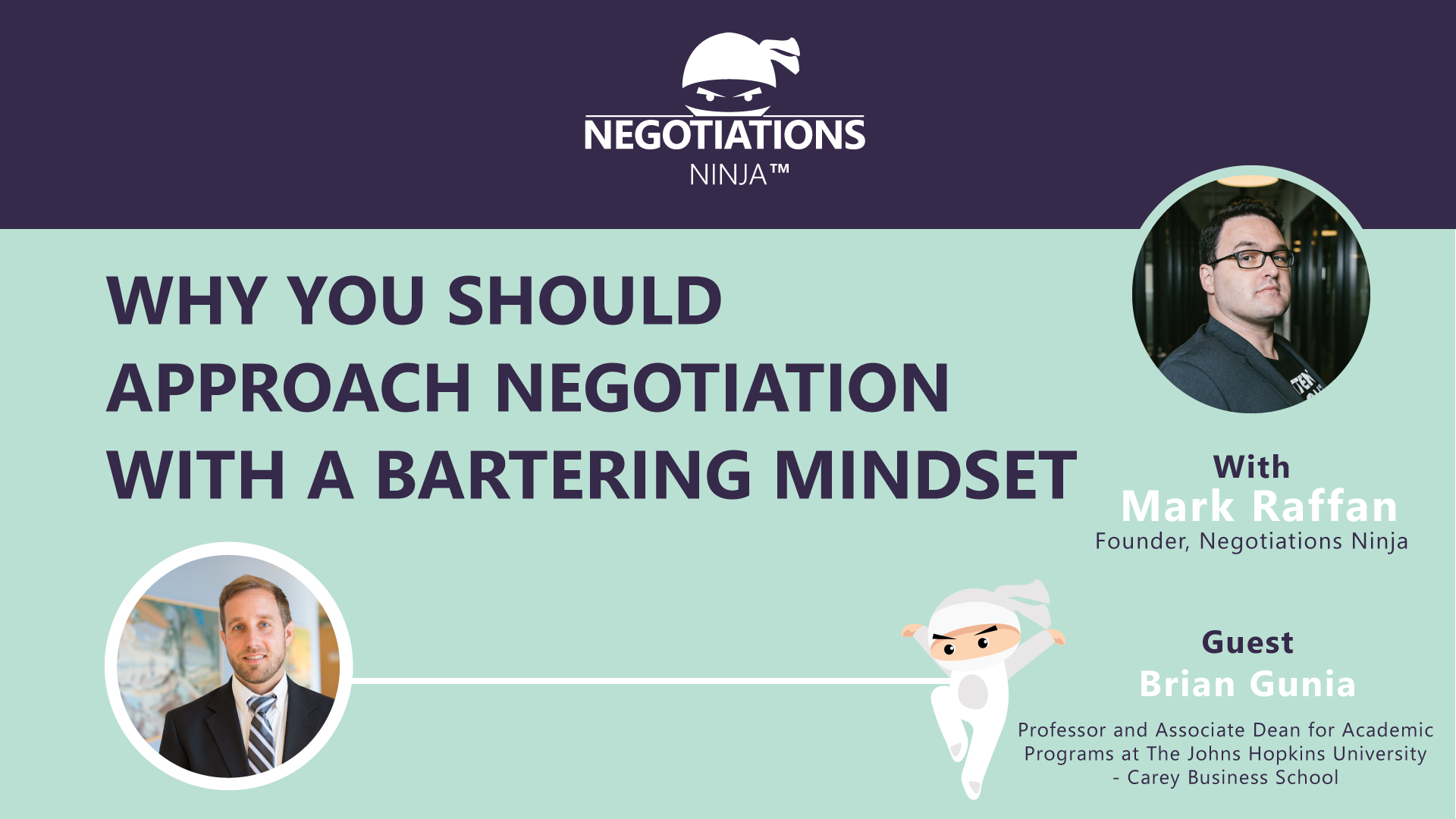Why should you approach negotiation with a bartering mindset? You have to think of negotiating as making a set of mutually beneficial trades with a series of people. You’re walking around a market and identifying partners with compatible needs and offerings. But there are some mental hurdles to overcome. So Brian Gunia joins me in this episode of Negotiations Ninja to share more about bartering and discuss how powerful it can be in the negotiation process.
Outline of This Episode
- [1:25] Learn more about Brian Gunia
- [2:07] The difference between bartering and bargaining
- [4:13] Why did bartering become popular during the pandemic?
- [6:54] Why Brian wrote a book about bartering
- [9:27] The mistakes people make in the bartering process
- [14:08] Map out the full range of available partners
- [16:17] Tap into why something is valuable to a counterparty
- [18:46] Common objections to the bartering mindset
The difference between bartering and bargaining
When most people think of negotiation, they think of bargaining, not bartering. Brian emphasizes that you need to disassociate those terms. So what is the difference between the two?
Bargaining: This is assuming you want one thing and someone else wants something else, and you have to “fight them” to get more of what you want or need (or reach a compromise). Brian does not recommend taking this stance.
Bartering: Bartering is trading one thing for another. To do this, you have to need what they want and want what they have at the same time (the double coincidence of once). It makes it difficult to reach an agreement over one thing. People who barter think about who else they can barter with and bring up other issues. It forces negotiators to think creatively.
The mistakes people make in the bartering process
Most negotiators try to barter one thing for another. But you can’t come to the table with only one thing to trade. If you only have one thing in your back pocket, it’s going to be hard to find someone who wants that exact thing that also has exactly what you want. What are the various things you can barter? What are the talents you can bring to the table?
People try to barter without thinking about whether or not someone wants what they’re offering. If you don’t want it, why would someone else want it? You have to take the other side’s perspective and think about what you can offer and what someone else wants. What else can you pull in that might be valuable to the counterparty?
Map out the full range of available partners
What if you bring multiple partners together? What benefits could that provide? Brian points out that you should always think about at least two negotiation counterparts—who you’re facing and the next best alternative. But he emphasizes that you should take it further.
Anytime you’re negotiating something important, you need to consider the whole marketplace of counterparts you could deal with. Different configurations of deals will become possible. What if you can do a circular trade? A third party in the equation might view your resources differently. Everyone can get something they want. Value can be created.
How do you tap into what’s valuable to the counterparty? What are common objections to the bartering mindset? Listen to the whole episode to learn more about the bartering mindset.
Resources & People Mentioned
Connect with Brian Gunia
- The Bartering Mindset
- Brian’s website
- Connect on LinkedIn
- Follow on Twitter
Connect With Mark
- Follow Negotiations Ninja on Twitter: @NegotiationPod
- Connect with Mark on LinkedIn
- Follow Negotiations Ninja on LinkedIn
- Connect on Instagram: @NegotiationPod




